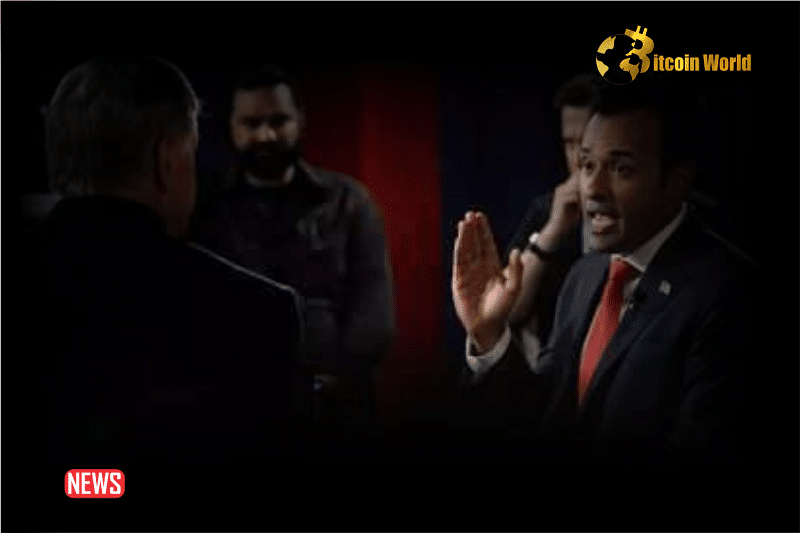The Republican presidential debate in Alabama wasn’t just about traditional politics; crypto took center stage! Candidates presented bold proposals and engaged in heated discussions about regulation and the future of digital currencies. Here’s a breakdown of what went down and what it could mean for the future of crypto in the US.
Vivek Ramaswamy’s Crypto Vision: Less Regulation, More Freedom?
Vivek Ramaswamy, a vocal advocate for crypto within the Republican party, didn’t hold back. He referenced the legal issues surrounding Binance’s former CEO, Changpeng Zhao (CZ), highlighting the need for updated regulations. He also brought up the FTX scandal involving Sam Bankman-Fried (SBF), using it to criticize the existing regulatory framework as a catalyst for the collapse.
Ramaswamy’s key proposals included:
- Cutting the SEC workforce to reduce regulatory overreach.
- Classifying cryptocurrencies as commodities, removing them from the SEC’s direct control.
- Criticizing SEC Chair Gary Gensler’s ambiguous stance on Ethereum.
His argument centers around fostering innovation by reducing regulatory burdens. But is less regulation the answer? Some argue that strong regulations are needed to protect investors and prevent fraud.
Robert F. Kennedy Jr.’s Pro-Bitcoin Stance
Robert F. Kennedy Jr., now running as an Independent, offered a contrasting perspective, advocating for policies that directly benefit Bitcoin:
- Exempting Bitcoin from capital gains tax.
- Supporting the right to self-custody Bitcoin.
- Backing the dollar with assets like gold and Bitcoin.
Kennedy’s vision positions Bitcoin as a key component of a future financial system. This raises questions about the role of Bitcoin in national economies and its potential to challenge traditional financial structures.
Ron DeSantis and the Fight Against CBDCs
Florida Governor Ron DeSantis made his position on Central Bank Digital Currencies (CBDCs) crystal clear: “they would be dead on arrival if I get elected.” He has previously signed a bill against CBDCs in Florida, signaling his strong opposition to government-controlled digital currencies.
Why the opposition to CBDCs? Concerns often revolve around:
- Government control over financial transactions.
- Potential for surveillance and censorship.
- Threats to financial privacy.
The Debate Beyond Crypto: Controversy and Discussion
The debate wasn’t solely focused on crypto. Ramaswamy’s controversial claims about the January 6th Capitol assault and the Democratic Party’s platform ignited further discussion and debate among the audience and other candidates. This highlights the intersection of crypto policy with broader political ideologies and debates.
What Does This Mean for the Future of Crypto?
The Republican debate served as a significant platform for discussing crypto policies. The diverse viewpoints presented, from Ramaswamy’s deregulation proposals to Kennedy’s pro-Bitcoin stance and DeSantis’s anti-CBDC stance, reveal the complex and evolving landscape of crypto regulation. As the political landscape continues to shift, these discussions will undoubtedly shape the future of crypto in the United States.
Disclaimer: The information provided is not trading advice, Bitcoinworld.co.in holds no liability for any investments made based on the information provided on this page. We strongly recommend independent research and/or consultation with a qualified professional before making any investment decisions.


